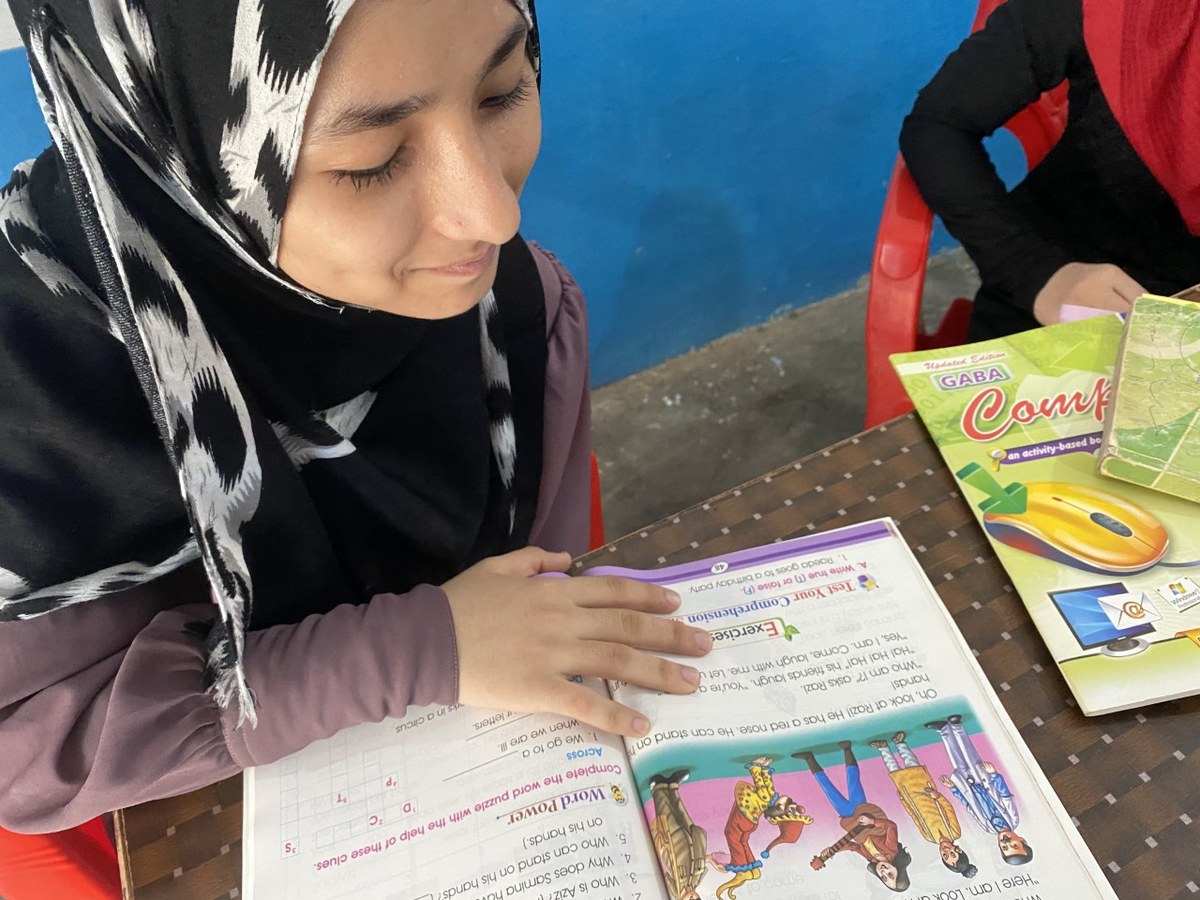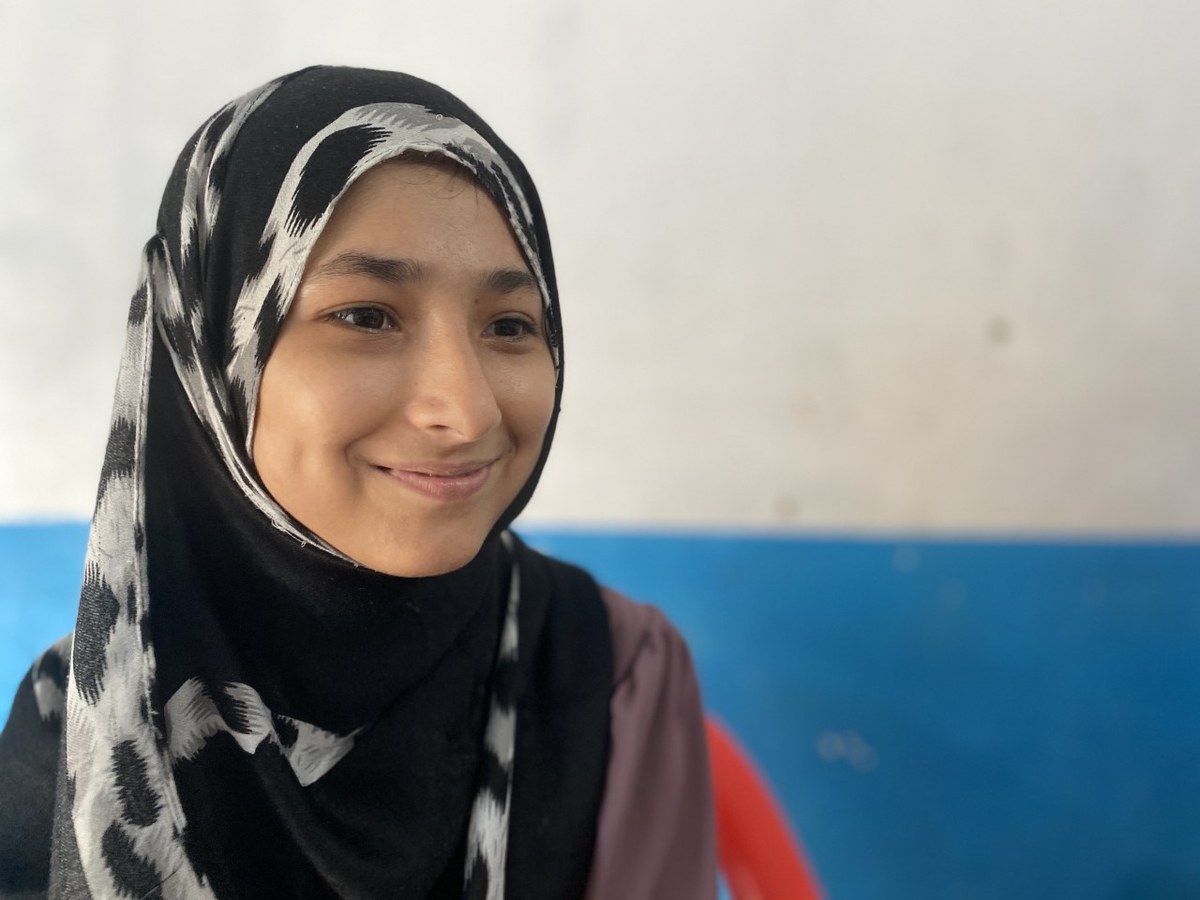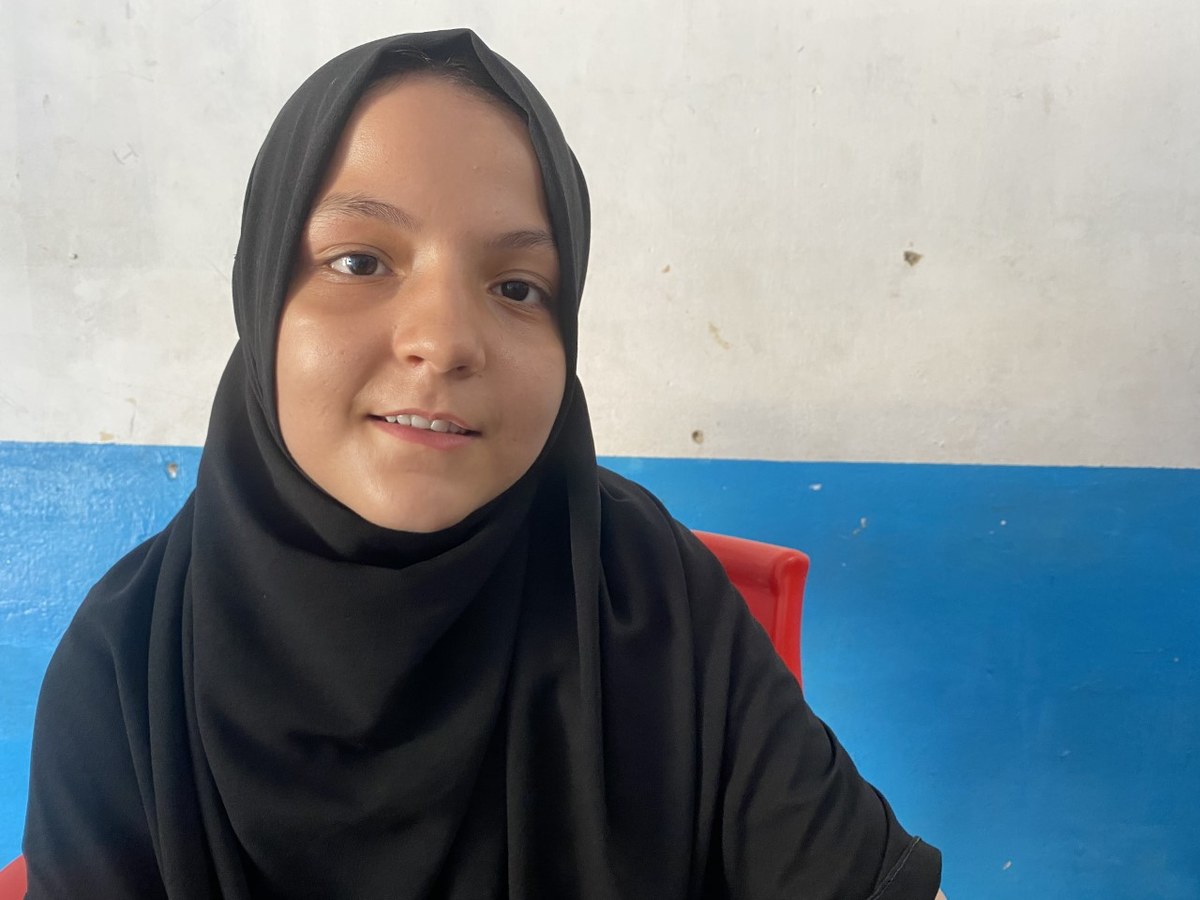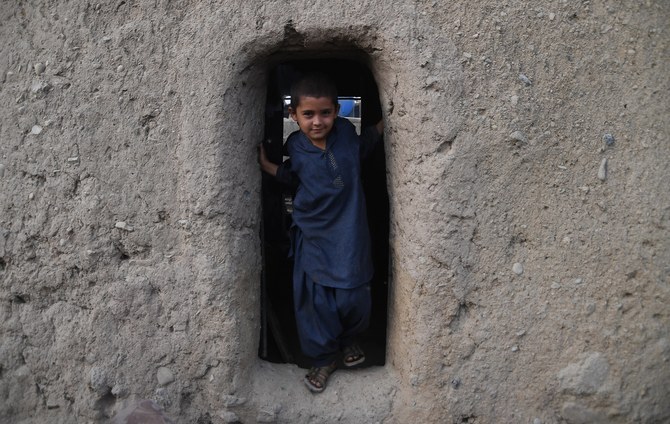KARACHI: Last month, when an Afghan refugee boy became one of the top matriculation exam scorers in Mardan city in Pakistan’s northwestern Khyber Pakhtunkhwa province, Asma Rahimi was happy for him. But the feeling was also bittersweet.
Like the boy from Mardan, she too is the child of Afghan refugees. But unlike him, she might not be able to complete secondary education in the city where she lives: Pakistan’s teeming port metropolis of Karachi in the southern Sindh province.

Asma Rahimi, a 14-year-old Afghan refugee, is doing her homework while she talks to Arab News in Karachi on July 29, 2020 (AN Photo)
Education is a provincial subject and admission rules differ across Pakistan. While children face no legal obstacles to education in Khyber Pakhtunkhwa and Balochistan, which host most of Pakistan’s Afghan refugees, in Sindh many said they had little chance of completing secondary school because of de facto rules.
“I won’t be able to study ahead,” Rahimi, currently in the eighth grade, told Arab News. “This will be my last year, I cannot study onward.”
Rahimi’s family moved to Pakistan three decades ago, fleeing armed conflict in Afghanistan’s Kunduz province, which is now dominated by the Taliban militant group.
About 2.5 million Afghans, many of whom fled their homeland after it was invaded by the Soviet Union in 1979, live in Pakistan, home to the world’s second-largest refugee population.
In 2018, soon after coming to power, Prime Minister Imran Khan vowed to grant citizenship to Afghan refugees who have lived in the country for several decades. Almost two years later, that promise remains unfulfilled.
Afghans have long complained about constant harassment and lack of opportunities in Pakistan due to the lack of citizenship rights for those who have spent decades living and working here. The problems — particularly of discrimination, racial profiling and the inability to open bank accounts or buy and rent property without proper identification documents — are spread across Pakistani cities and are not limited to Sindh province alone.
But the recent case of the Mardan matriculation exam topper has put Karachi’s problems in the spotlight.
Rahimi said her sister studied at the city’s Syed Jamaluddin Afghani School for refugees, which is registered with the Afghan ministry of education and offers classes up to grade 12. However, the school’s certification is not recognized by Pakistan.
“If anyone wants to study ahead, he or she will have to go to Afghanistan,” Syed Mustafa, principal of the school, told Arab News, adding that many parents thus had no option but to send their kids to religious seminaries to continue their education.
Rahimi says he wants to go to university and become a psychologist. So instead of joining the refugee school, she enrolled in Alama Iqbal Public School in Karachi, only to realize that even though there was no official restriction, a de facto ban precluded her from studying beyond grade eight.

Asma Rahimi is speaking to Arab News in Karachi, July 29, 2020. She wants to study and become a psychologist, but in Karachi she may be unable to even complete secondary education. (AN Photo)
In 2012, the Board of Secondary Education in Karachi (BSEK), which is the authority responsible for the registration of private and government schools in the city, made it mandatory for ninth grade students to possess a Child Registration Certificate, commonly referred to as Form-B, which serves as an identity document for those below the age of 18. Refugee children cannot obtain it.
According to Professor Saeeduddin, chairman of the BSEK, the decision was made at the request of the provincial government so students could not get Pakistani nationality simply on the basis of educational credentials.
“If an immigrant does his matriculation, he then may say that since he has done his matric from Karachi, he should be granted nationality,” Saeeduddin said.

Afghan refugee Zahra Arif, 13, is speaking to Arab News in Karachi on July 29, 2020. She wants to finish school and become a civil engineer. (AN Photo)
Muhammad Riazuddin, secretary at the Universities and Boards Department Sindh, denied there was any regulation barring refugees from studying beyond the secondary level in the province. He said Sindh was an inclusive province and “strongly believes in children’s right to education, which is not only enshrined in the UN charters but also the constitution of Pakistan.”
“The National Alien Registration Authority (NARA) cards give legal immigrants the right to have electricity, gas and water connections as well as to obtain education,” he said, adding that the same applies for Afghan refugees who have Proof of Registration (PoR) cards.
But students say while there may be no provincial restrictions, the rules in Karachi effectively prevent Afghan kids in Sindh from studying beyond a point because most of the province’s 60,000 Afghan refugees live in the port city.
“We are not allowed to get education. I cannot study here,” Zahra Arif, a seventh grader at Syed Jamaluddin Afghani School, told Arab News.
“I want to become an engineer. I will make houses for the poor,” she said, adding that she was born in Pakistan and had never even visited Afghanistan.
Unlike her, Rahimi has been to Afghanistan and spent three months there. “Our uncle asked us to stay, but there was no school or college and everyone was illiterate, so my father took us back as he wants us to study, to change our society,” she said.
With a wry smile she added: “I want to study, I want to become something in life.”












